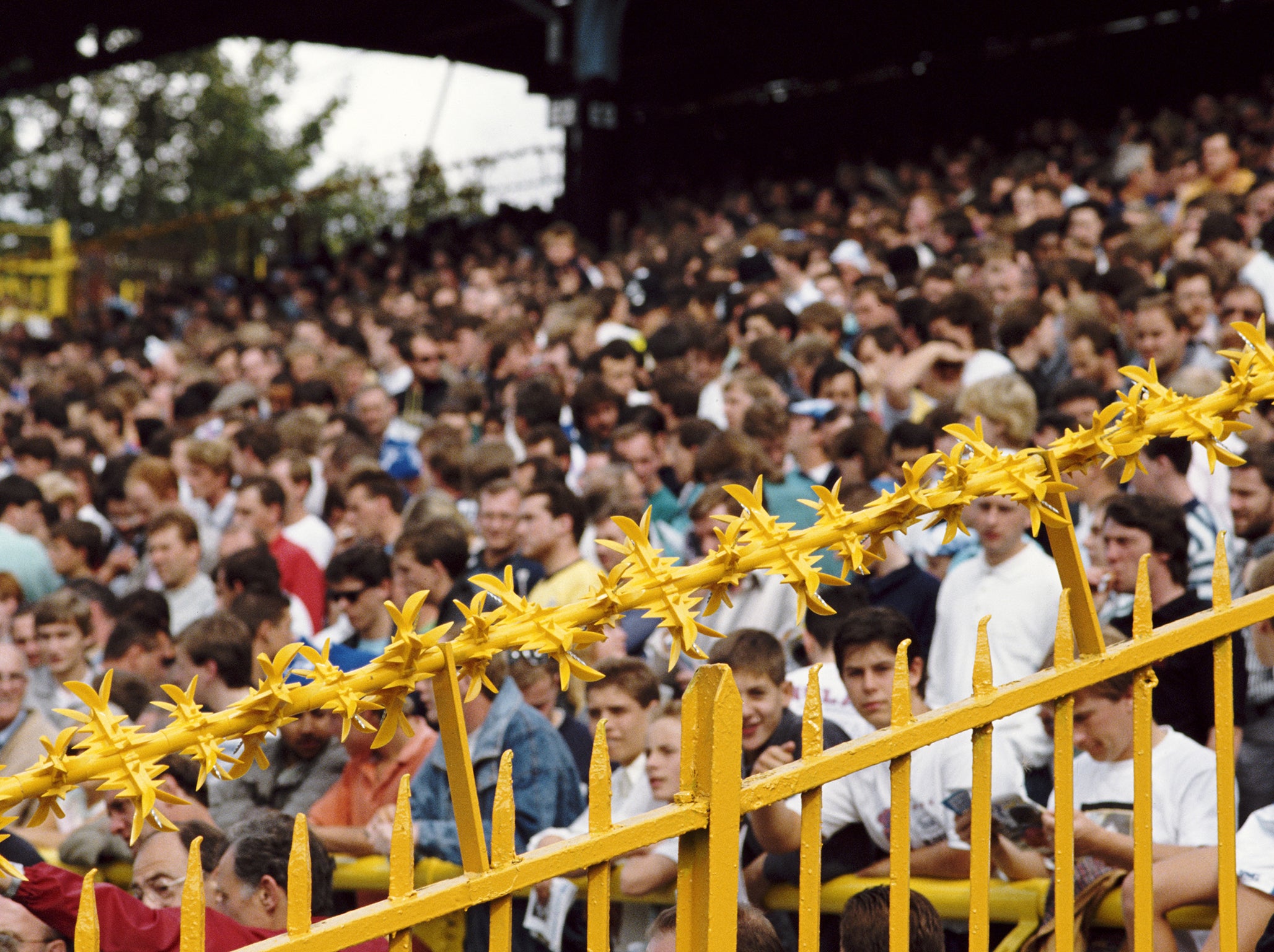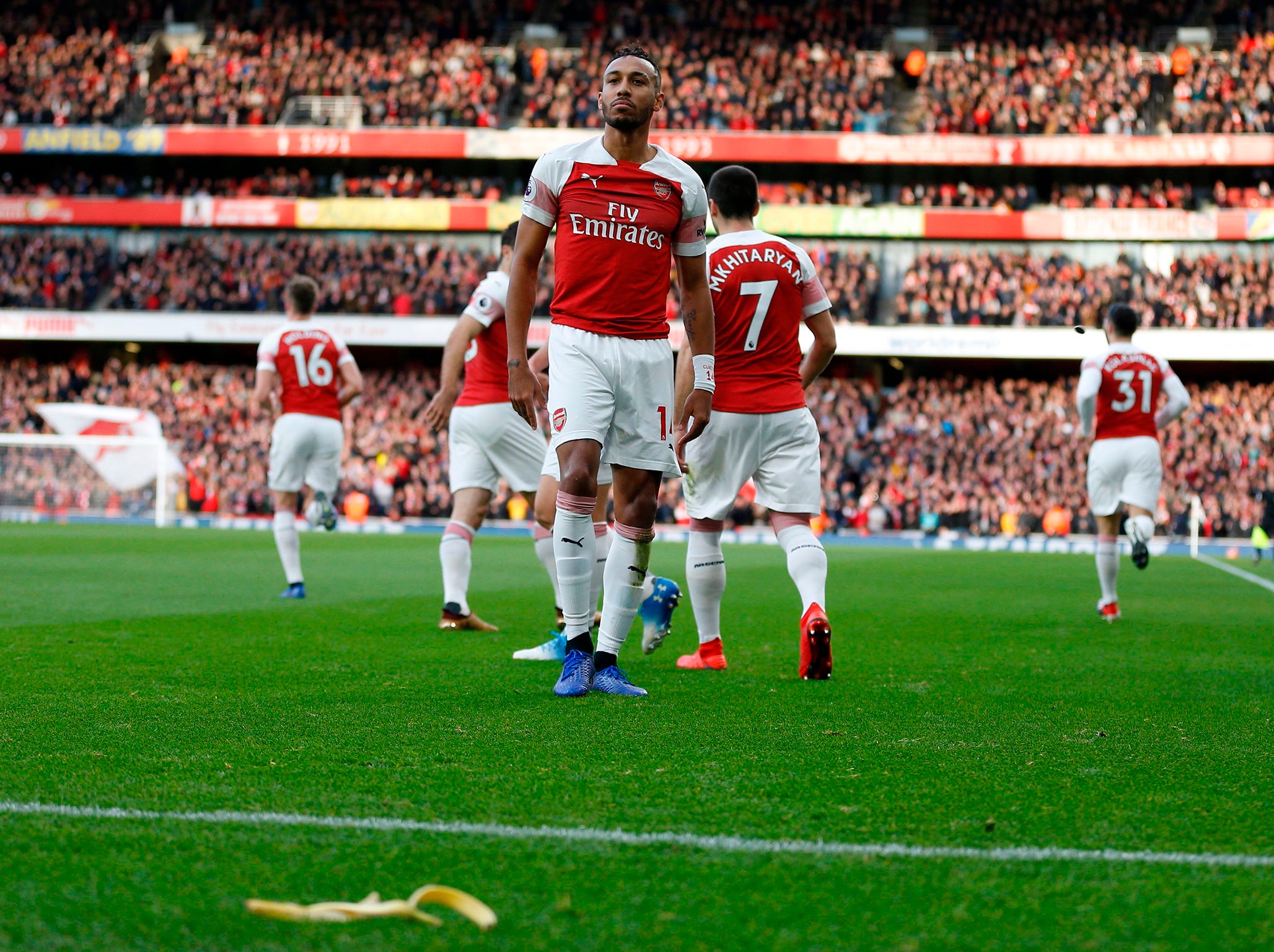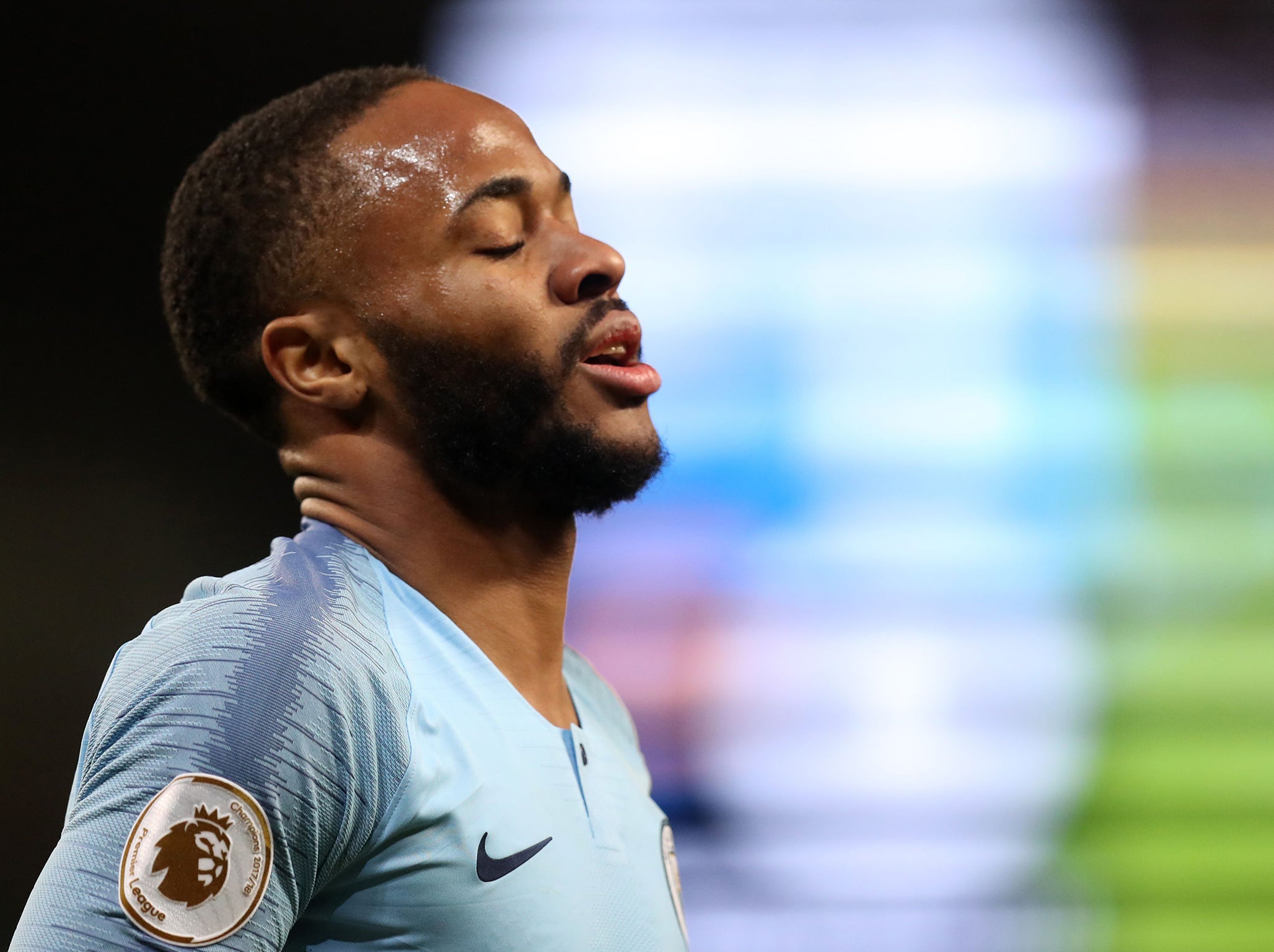Spotting a racist is easy – what to do next is the hard part
Identifying racists is easy. Condemning racists is easy. But now for the hard bit: what do we do with them?

Your support helps us to tell the story
From reproductive rights to climate change to Big Tech, The Independent is on the ground when the story is developing. Whether it's investigating the financials of Elon Musk's pro-Trump PAC or producing our latest documentary, 'The A Word', which shines a light on the American women fighting for reproductive rights, we know how important it is to parse out the facts from the messaging.
At such a critical moment in US history, we need reporters on the ground. Your donation allows us to keep sending journalists to speak to both sides of the story.
The Independent is trusted by Americans across the entire political spectrum. And unlike many other quality news outlets, we choose not to lock Americans out of our reporting and analysis with paywalls. We believe quality journalism should be available to everyone, paid for by those who can afford it.
Your support makes all the difference.Identifying a racist is often easy enough. Rather self-defeatingly, they tend to give themselves away in the time-honoured and fool proof method of doing something racist.
The West Ham fan shouting Islamophobic abuse at Mo Salah as he prepared to take a corner on Monday night, definitely a racist. Whoever made monkey noises at Tottenham’s Renee Hector during a Women’s Championship game against Sheffield United last month, a racist. The Chelsea fans I heard singing about Hitler’s gas chambers on a train back to London a couple of years back, racists. Liam Neeson: a racist 40 years ago, although he claims he’s not any more, and his co-star Michelle Rodriguez says he can’t possibly be because he kissed Viola Davis in Widows, for his job. We’ll generously put that one in the ‘maybe’ column.
In fact, there’s only one thing easier than identifying racists. Condemning racists. “There is no place or excuse for this kind of behaviour,” reads West Ham’s official statement on the Salah incident. Millwall pronounced itself “extremely disappointed” by racist chanting during their FA Cup win over Everton. Sheffield United wanted everyone to know that “it does not condone racism or any form of discrimination,” which is nice of them. So yes, identifying racists is pretty easy, and condemning them is pretty easy. But now for the hard bit: what do we do with them?
This is not the same question, by the way, as how to tackle racism as an issue. That’s a long and labyrinthine process of education, policy, self-reflection and cancelling Brexit. If you’re a governing body, it probably means frowning a lot, holding ‘stakeholder summits’ with pastries and those posh bottles of mineral water, and using empty phrases like “zero tolerance”. I’m reminded of the time David Cameron held a much-trumpeted Downing Street summit on football racism, where he did his serious face and pledged to “crush” the problem. That was in 2012, and in hindsight Cameron’s commitment to the cause stretched barely further than getting his photo taken with John Barnes before leaving someone else take care of the mess, which is a pretty good metaphor for his premiership as a whole.
No, this is the real quiz: you’ve identified your racist, and he has a name and job and perhaps a family and a season ticket. What happens next?

At an individual level, you have the option of not caring. In the online sphere, ostracisation is easy enough: we can mute, block, purge the racist from our own curated little corner of the world and never have to think of them again. If they’re famous, we can “cancel” them, which is essentially the same as saying nothing they ever say or do will ever carry any worth. And for those who live with the smouldering injustice of racism every day of their lives, perhaps this is the only real way of staying sane. It’s a blunt instrument, to be sure, but better than none at all.
As a society, we don’t have that option. And perhaps this is one of the reasons we have collectively been so poor at addressing racism. We’re far happier to deal with it in the abstract than the concrete, the superficial than the complex. For many, simply calling out the racist is enough. To seek any deeper level of understanding would be to risk humanising him, explaining or excusing him, which as an argument is both highly powerful and utter nonsense. The racist is still here, he’s walking our streets, he’s on Facebook and Twitter, he’s sitting in Row F, seat 32. What are we going to do?
Well, the first option is to ban him from the stadium, which has the handy dual function of moving the problem somewhere else and freeing up a seat for someone else to use. You could go further, of course, and close an entire section of seats, close the entire stadium, fine and ban the club. Piara Powar, the executive director of Fare, advocates this course of action, and while it’s a viable strategy for clubs who aren’t pulling their weight, there is equally a limit on what any single club can do on its own.
Just ask Millwall, who have been blighted by racist fans for years, and have thus given the matter a good deal more thought than virtually any other club in the country. They’ve closed sections of The Den. They’ve issued life bans. They’ve put extra stewards in the worst areas. Board members have personally gone into the notorious Block 18 to plead with fans not to be utter morons. But as chief executive Steve Kavanagh puts it: “We will take responsibility for our guys, but this isn’t just a Millwall problem. We can’t be responsible for educating the whole of south-east London.”
The clubs will always be the first line of defence. But to treat the footballing racist as an exclusively footballing problem offers everyone else a get-out. The fan singing anti-Semitic chants at the football doesn’t automatically stop being a racist when he leaves the ground and drives home. Which is where the law comes in. Or at least, where it should.

There are a multitude of laws on the statute books to prosecute racial abuse or harassment, some dealing specifically with football. And yet the evidence suggests that they are either not being properly applied or are simply not fit for purpose. “Chanting of an indecent or racialist nature” at a football match is specifically sanctioned under the Football (Offences) Act of 1991, which coincidentally is also the last year in which anyone used the word “racialist”. We’re fighting a very modern battle with the tools and presumptions of a bygone age.
Just before Christmas, a man named Averof Panteli was found guilty at a north London magistrates court of throwing a banana skin at Pierre-Emerick Aubameyang during the north London derby. The magistrate emphasised the racist element of the crime, but the crime itself was for “throwing a missile”, which earned him a four-year football banning order and a fine of £735. Another defendant, an Arsenal fan who threw a plastic bottle during the same match, was given a three-year banning order for the same offence and fined £800.
Does that strike anyone as faintly disproportionate? This is the fundamental problem with existing hate crimes legislation: it tends to treats racism as an aggravating factor in a crime rather than a crime in its own right. If treason is an assault on the institutions of a country, then racism is an assault on its very foundations, a crime against society, a crime against nature. Yet the justice system, from Parliament to courtroom, often addresses openly racist behaviour with the lightness of touch associated with minor pickpockets or petty vandals.

Just over a year ago, Karl Anderson pleaded guilty to a racially-aggravated common assault on Raheem Sterling, in which he attacked him outside Manchester City’s training ground, kicked him four times and called him a “black Scouse c---” and the N-word. The court heard that Anderson had 25 previous convictions for 37 offences, many of them football-related. Now, what sort of sentence would be appropriate for that sort of crime? If you said “16 weeks”, then come to the front to collect your prize.
Sixteen weeks. There are items in my fridge that have been there for longer than that. And not just the condiments, either: actual foodstuffs. Reacting to the decision, the Secret Barrister blogger wrote an extensive post trying to determine the rationale for the sentence, describing it as a “typical magistrates’ sentence: a short period of custody likely to achieve diddly squat, at enormous public expense”. He or she continued: “I don’t put the blame solely on the shoulders of the sentencing court; they operate in a culture where this type of sentence for this type of offence is considered appropriate.”
In which case, we’re in a broken system. I’m neither a legal expert nor a criminal justice scholar. But it strikes me that you have two constructive paths here: extensive rehabilitation and exemplary punishment. And we’re talking about the sort of punishment that not merely fits the crime, but deters future crimes. As the new prisons minister Rory Stewart put it in a recent interview: “the wrong kind of short sentence… is long enough to damage the person, and not long enough to change their life”.

What the minister failed to recognise, however, was the egregious effects on the justice system wrought by his own government’s austerity policy. Extensive cuts have left the probation service in tatters. Essential tools of rehabilitation such as the prison careers service have been hit by cutbacks. All of which means magistrates are incentivised to use prison solely as a last resort, preferring the judicial equivalent of a slap on the wrist and a warning not to do it again.
Perhaps this goes some way towards explaining why “just ban the clubs” doesn’t really get to the root of the problem. In the meantime our government, subsumed by the chaos of Brexit, has been quite happy to shove the responsibility back on to football. For all the stern expressions and fancy summits, there remains a residual sense that the legislature seems to regard football racism as a largely parochial issue. To do otherwise would be to admit their own complicity.
So what do we do with a racist? Well, it’s a two-ended bargain. If we’re serious about rehabilitation, then society needs to be able to forgive. To understand that a repentant racist is better than an unrepentant racist, and that a racist who takes active steps to address the consequences of their crime is better still. But the other side of the bargain is responsibility: from the criminal themselves, from government, from the justice system, to ensure that a commitment to tackling racism involves more than well-meaning words. Right now, I’m afraid to say, none of that’s happening.
Join our commenting forum
Join thought-provoking conversations, follow other Independent readers and see their replies
Comments